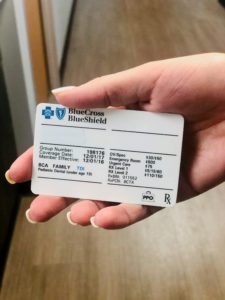Raise your hand if you like paying taxes on your hard-earned money?
I didn’t think so.
Does your employer offer these pre-tax health accounts? If so, take advantage. These accounts allow you to use pre-tax money to save for medical expenses. Still confused? Let me explain.
What is Pre-tax money?
This is money that has been pulled out of your paycheck BEFORE taxes are taken out. This money is worth more to you.
Here’s a simple example to explain the value of pre-tax money:
If you are paid $1,000 and taxed at 25% you will take home $750. Then if you had to spend $50 on medical costs, that leaves you with $700. However, if that $50 was taken out pre-tax, you would only be taxed on $950 and that would leave you with $712.50. To put it simply, that $50 will only cost you $37.50 if taken out pre-tax.
Flexible Spending Account (FSA)
A Flex Spending account is an account offered through an employer where you can put away pre-tax money for qualified health expenses.
The 2019 limit for an FSA is $2,700. FSA is a use-it-or-lose-it account. Make sure to check with your HR department or your Flex Spending Company for the specific rules that are set by your employer.
There are rules regarding what your FSA can be used for so be sure to look those up on the IRS website. Some examples include: co-pays, deductibles, prescription medicine (usually NOT over-the-counter medicine), dental visits, vision, etc.
Health Savings Account (HSA)
An HSA or Health Savings Account is another way to put away pre-tax money for qualified health expenses. However, to qualify for an HSA you must be on a high-deductible health insurance plan that meets certain criteria. These are plans that do not have co-pays but instead everything comes out of the deductible. Make sure to check your insurance plan and see if it qualifies as a High Deductible Health Plan that is HSA eligible.
Some employers will offer an HSA and the pre-tax contributions will be pulled directly from your paycheck and into the account. However, if you are on a high-deductible plan that is HSA eligible and your employer does not offer this, you can open one up yourself. If you do this, make sure to keep track of the amount you put in so you can claim it on your taxes.
Dependent Care Flex Spending
Does your employer offer Dependent Care Flex Spending? Do you have children in daycare? If the answer is “yes” to both of those questions, this should be a no-brainer. You are going to be paying that money for childcare anyway, so you might as well take the tax savings. This tax-free money will be pulled form your paycheck and you can then use it to pay for child-care.
Now what?
So, you have information on these accounts, now the question is how much should you put away?
An HSA allows you to put away up to $3,500 a year for single coverage and $7,000 for family coverage in 2019. One of the best things about this is that the money doesn’t go away. Even if you leave your job, an HSA stays with you. So no need to worry about losing it.
If you use an FSA you need to predict how much you think you’ll have in medical expenses for the year because if you don’t use it, you will lose it. Some employers allow a carryover so it’s important to ask questions when signing up.
The Dependent Care Flex Spending has a $5,000 limit. With daycare costs soaring, you’ll likely use this up easily.
For more information on these, accounts you can visit the IRS website or check with your HR department. But I’ll say it again, don’t turn down free money!
Disclaimer: The information on this blog is for educational and informational purposes only. This information may not apply to every insurance plan. You must always check with your specific insurance for any advice.





Sandy
12 Feb 2020Thank you for this article and making pre-tax easy to understand, especially as it relates to health care. Health Care costs can create debt and stress. I really appreciate the tidbits of wisdom!